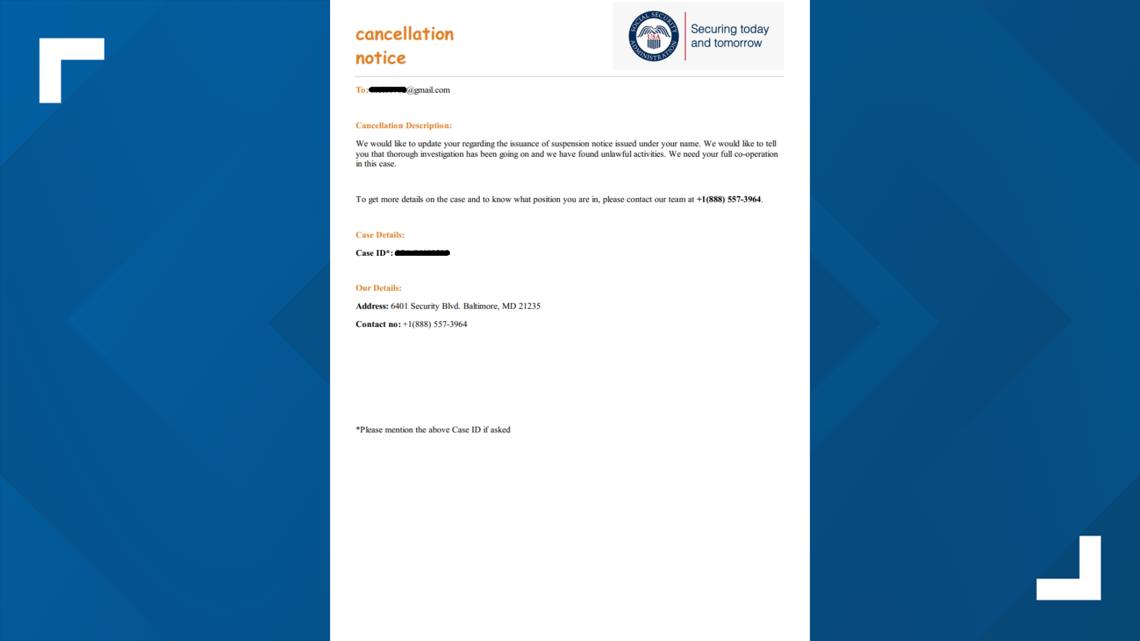A VERIFY viewer asked if a notice she received was legitimate. Several red flags indicate it is not from the Social Security Administration and probably a scam.
WASHINGTON — Scammers use lots of techniques to take advantage of people and get their money or their personal information. Often, their sophistication makes it difficult for their targets to distinguish between official documents and scams.
A viewer named Shirley emailed us to ask about a letter she received that said her Social Security benefits were about to be canceled because it seemed suspicious to her.
QUESTION
Is the letter Shirley received a real notice from the Social Security Administration?
SOURCES
ANSWER
![]()
No, the letter Shirley received is not legitimate and is likely a scam
WHAT WE FOUND
The letter Shirley received in her email said it was a cancellation notice from the Social Security Administration. It contained the SSA logo, a case ID number, and contact information. It said an investigation had revealed unlawful activity and a suspension notice had been issued. To resolve the issue, the letter urged her to contact their team.


Our sources say there are lots of red flags in this letter to prove it is not legitimately from the SSA and is most likely a scam attempt.
Among the reasons:
The letter uses informal fonts, such as the font for the words "cancellation notice" at the top.
The letter addresses Shirley by her email address, not her name.
The letter has grammatical errors. For instance, the title, "cancellation notice" is not capitalized.
The letter uses urgent, threatening language. The Montgomery County State's Attorney's Office says that kind of language is designed to prey on a target's emotions and get them to act quickly without questioning whether the request is legitimate.
The phone number on the letter does not correspond to a Social Security Office. Entering the number into a Google search reveals no results connected to a Social Security Administration web page.
The letter came from a Gmail account. The Social Security Administration says it will only email someone from an official .gov address or from an echosign.com address.
The SSA's Office of the Inspector General said that victims of government imposter scams such as this reported losses of more than $500 million during 2022.
If you receive a similar email, the SSA asks you to forward it to the U.S. Computer Emergency Readiness Team at phishing-report@us-cert.gov.
.png)









 English (US) ·
English (US) ·